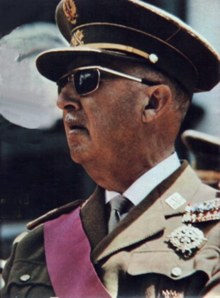No man is an island,
Entire of itself.
Each is a piece of the continent,
A part of the main.
If a clod be washed away by the sea,
Europe is the less.
As well as if a promontory were.
As well as if a manor of thine own
Or of thine friend's were.
Each man's death diminishes me,
For I am involved in mankind.
Therefore, send not to know
For whom the bell tolls,
It tolls for thee.
Entire of itself.
Each is a piece of the continent,
A part of the main.
If a clod be washed away by the sea,
Europe is the less.
As well as if a promontory were.
As well as if a manor of thine own
Or of thine friend's were.
Each man's death diminishes me,
For I am involved in mankind.
Therefore, send not to know
For whom the bell tolls,
It tolls for thee.
(1624 Meditation 17, from Devotions Upon Emergent Occasions)
Before I start my review, let me refer you to a fascinating NPR radio report by Susan Stamberg about how fierce political opponents, Barack Obama and John McCain, relate with the main character, Robert Jordan HERE.
First off, let me say that I have always avoided Hemingway like the plague, but he is one of my husband's favorite authors. Also, four out of Hemingway's seven novels are on my list of "100 Great Books"! Can you believe that?
So this is my first foray. The tipping point toward reading came when I saw Midnight in Paris, and my husband laughed through all the lines of the Hemingway character, and I realized that he was the only author in the movie that I had not read (If you love art and literature, you HAVE to see Midnight in Paris. It is so fun!). Now that I have read through my first Hemingway, I know that Woody Allen TOTALLY pegged him in this movie. I need to see it again now that I have finally read him!
 |
| Francisco Franco ruled Spain from April 1939 - November 1975 |
I like books that make me think of history and war. Hemingway had an agenda. War stinks ("a bitchery" as one of the characters in the book says toward the end). I agree. The story was very slow moving, but I have to admit that Hemingway finally captivated me about 1/2 way through the almost 500 page book. I had been listening to it on audiobook, but there was something about seeing Hemingway's words that made me appreciate him for the craftsman that he truly was.
When I was stuck on that first half, I checked out the 1943 movie version with Gary Cooper and Ingrid Bergman (really, a blonde-haired, blue eyed Swede playing a Spaniard?). A visual picture sometimes gets me through a book. By the way, this is the only movie adaptation that Hemingway liked, and he loved Gary Cooper, his friend, playing the role of Robert Jordan.
Prior to the halfway point, I would have said it was pretty boring. Wondering if anyone else thought Hemingway boring, I found a fascinating article by Googling, "Is Hemingway Boring?" Read it! It is great (It has a few spelling errors, but don't let that deter you.). My husband tells me that Hemingway was the first of his kind. How he wrote was so ground-breaking that he won the Pulitzer Prize for literature. Today's reader might not appreciate this.
As I read it, I did wonder why is it that so many Twentieth Century authors wrote so brilliantly when they were drunk or high on drugs? I feel like it is like a "Photoshop for authors" because it enhanced their writing like Photoshop enhances photos. It is sort of like cheating.
Why were so many of them such troubled souls? Many of them died tragic deaths with suicide or the slow suicide from the substances they abused. Hemingway's suicide was related to all the health problems related to hard living, but it was also because he was severely depressed after the death of his friend, Gary Cooper (star of For Whom the Bell Tolls), from cancer two months earlier.
All that said, I ended up loving this story. I couldn't put it down (and even brought it to our church's annual business meeting and read it during less interesting points in the evening. LOL!).
The movie, like the book, is incredibly slow in the beginning, but it picks up in the second half and leaves you quite moved and contemplative in the end. Their love story was mesmerizing (and much cleaner in the movie than in the book!).


No comments:
Post a Comment